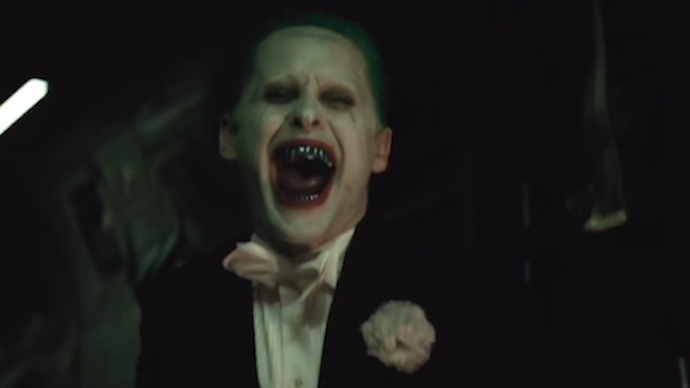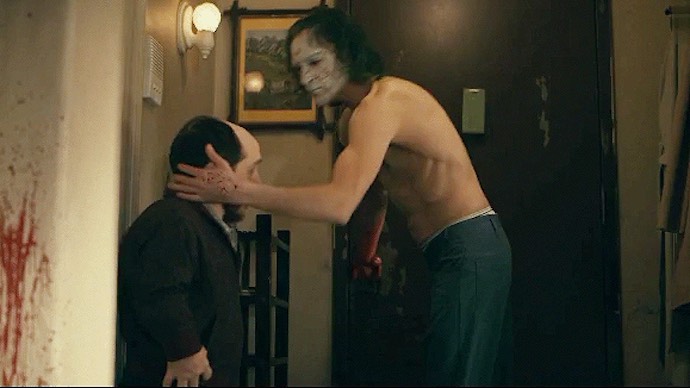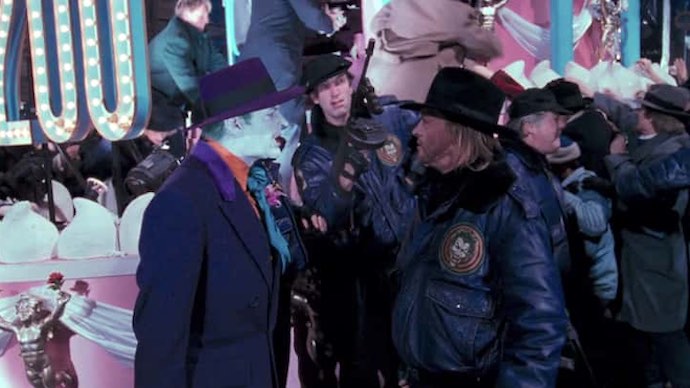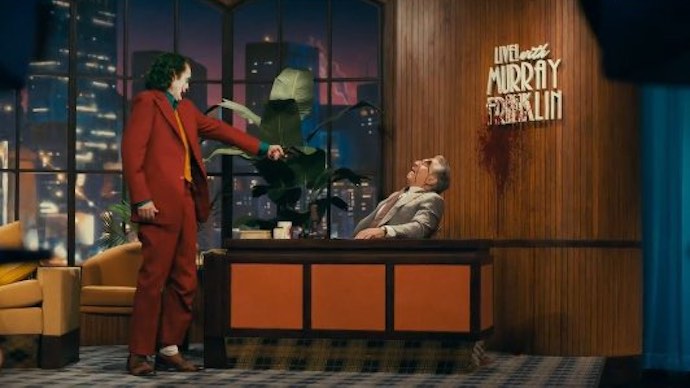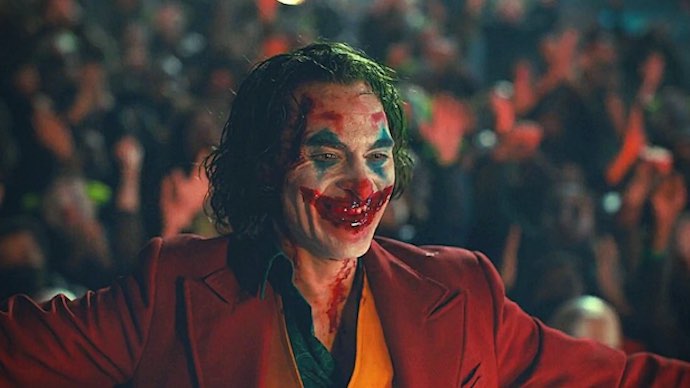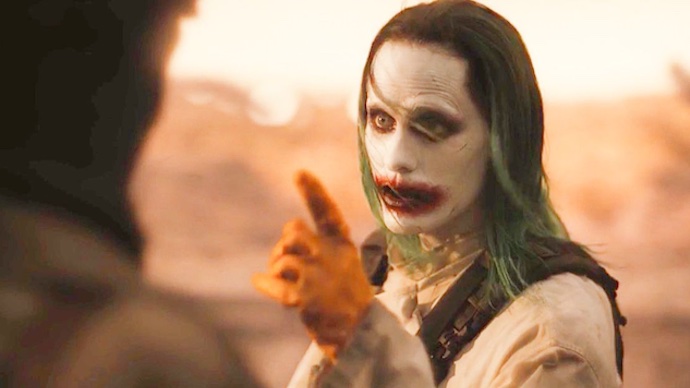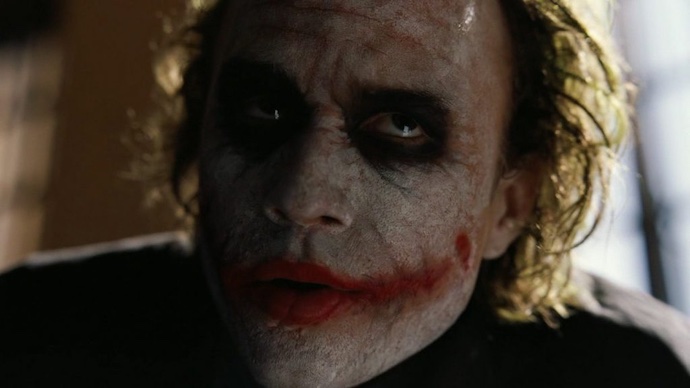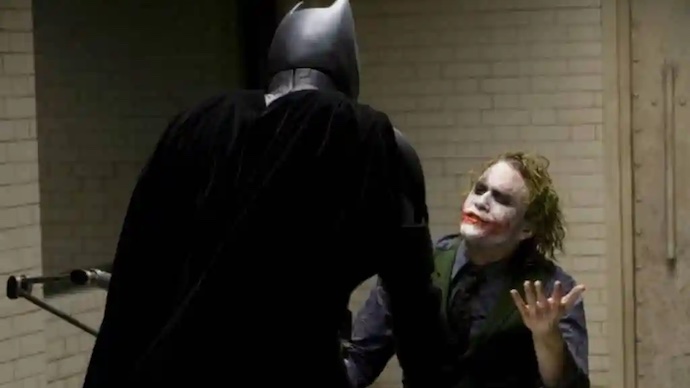Few villains have been able to become pop culture icons in their own right, detached from the stardom of their corresponding superheroes. We’re, of course, talking about The Joker of Gotham City. The Clown Prince of Crime has found a place in comic book lore that even most heroes never achieve. The Joker is instantly recognizable. He’s a known threat to whoever he’s near. He’s Batman’s greatest nemesis. In short, The Joker is the biggest and best villain of them all. In cinema, The Joker has been portrayed by numerous fine actors—from Jack Nicholson to Heath Ledger—and the character has pushed Batman to places that The Dark Knight never wanted to go. Most recently, the Clown even got his very own film, which showcased an Oscar-winning performance from Joaquin Phoenix and became one of the highest grossing movies ever made. In honor of the greatest comic book villain of all time, we’re revisiting the best Joker scenes and moments in cinema history.
8. The Helicopter Gunfight
Although the early promise of Suicide Squad had fans excited, the final product left them wanting. Most of Jared Leto’s scenes were cut, and his appearance in the film boiled down to a supporting role. However, despite ambivalent audience reception towards his unusual incarnation of the character, the one scene in which he rescues Harley from the rooftop is pure comic book Joker. The cackle, the minigun, the intensity of his plan brought together—all of it serves as a fun Joker moment in a film with few redeeming qualities.
7. Letting Gary Go
Joaquin Phoenix’s Arthur Fleck grew increasingly unhinged with each passing moment in Joker. The life that Arthur led slowly unfolds before the audience in the film up until the moment Gary and Randall walk into his apartment—and by that point, we know what’s coming when they cross the threshold. Taking a pair of scissors from his table, Arthur greets the pair inside his apartment before unleashing his unprovoked fury on Randall, who had previously been a bully to him. As Randall’s lifeless body lies on the floor, Arthur sits down in the blood and turns to Gary—who, after a few intense moments, he allows to leave.
6. Killing Bob
Throughout 1989’s Batman, Jack Nicholson’s Joker proved that he would kill anybody who got in his way, or even just anybody within eyesight. However, his always-loyal right-hand man, Bob, felt core to Joker’s plans and seemed like someone who was beyond danger. So, when The Joker asks Bob for his gun during the climactic parade sequence, the audience is shocked when he shoots Bob dead for no real reason other than being disappointed. For all the loyalty that Bob showed to his boss during the film, he ultimately died because he meant nothing to The Joker—which shows why the Clown is such a feared character.
5. Killing Murray
After Arthur mercilessly killed Randall for being cruel to him throughout his time working as a clown, Arthur heads to The Murray Franklin Show—where he’s booked to appear—with sinister intentions. When his interview with Murray takes a twisted turn after Arthur admits to murdering three men on the subway, Arthur becomes irate with Murray. The interview descends into chaos, Arthur takes out his gun, and he shoots Murray dead on live TV. It’s a scene that showcases his insanity against a system that kept him down. It’s ruthless, brilliant, and a moment of pure Joker carnage.
4. High Atop the Police Car
Here’s the expression of a man who’s liberated from his mental confines, now free to be who he feels he is on the inside. Arthur’s killing spree has kicked off a city-wide protest against the wealthy who rule over the poor, and Arthur revels in the carnage he’s caused. Sure, Arthur may soon be caught after his initial arrest, but the sight of hundreds of mask-wearing clowns all praising Arthur for standing up to those who look down on them? That’s a spine-tingling moment. The moment reaches its climax when Arthur uses his own blood to repaint the smile on his face.
3. Discussing the End of the World
Batman and The Joker are two sides of the same coin. One represents unrestrained chaos, the other represents regimented chaos. In the end, they both exist to drive the other toward new heights of criminality and justice. And that’s why the pair’s discussion in Zack Snyder’s Justice League provides a fascinating insight into the relationship between the hero and the villain. While standing together at the end of the world, they talk about the past and the consequences of Batman’s actions, which becomes a charged sequence where each tries to verbally put down the other.
2. The Bank Robbery
The Dark Knight needed to give DC fans a Joker whom they could get behind, as it had been over 25 years since Jack Nicholson gave the last live-action performance of the crazed Clown. In Heath Ledger, fans got the Joker they deserved—and more. His introduction into Christopher Nolan’s celebrated film remains one of the best in film history, as the villain hires bank thieves to take down a mob bank, then kills the other thieves as they go for a bigger share. However, as The Joker ensures he’s the last person standing, he finally reveals himself to the injured bank manager for the first time, taking off his mask and showing the audience his scarred face.
1. The Interrogation
For how great The Joker has been in many of his moments that don’t involve Batman, those times when they come together act as proof that they’re truly better together than apart. Consider Batman’s interrogation of The Joker in The Dark Knight. As Batman and the Clown discuss the whereabouts of Harvey Dent, Batman realizes that he has no leverage in the conversation—so he beats The Joker, hoping that’ll get him to spill the info on where Dent is. But The Joker doesn’t break, not even for a second. The way the two spar and the way The Joker’s plan comes into focus? It’s the purest expression of the pair’s relationship. They test one another in ways that others can’t, and as far as having an ace up the sleeve, The Joker always pulls one despite the tightest of cuffs. No Joker moment is better than this, as he takes on his foe with a smile and abundant malice, pushing Batman to his very limit. Read next: Standalone DC movies that should be made (similar to Joker)

